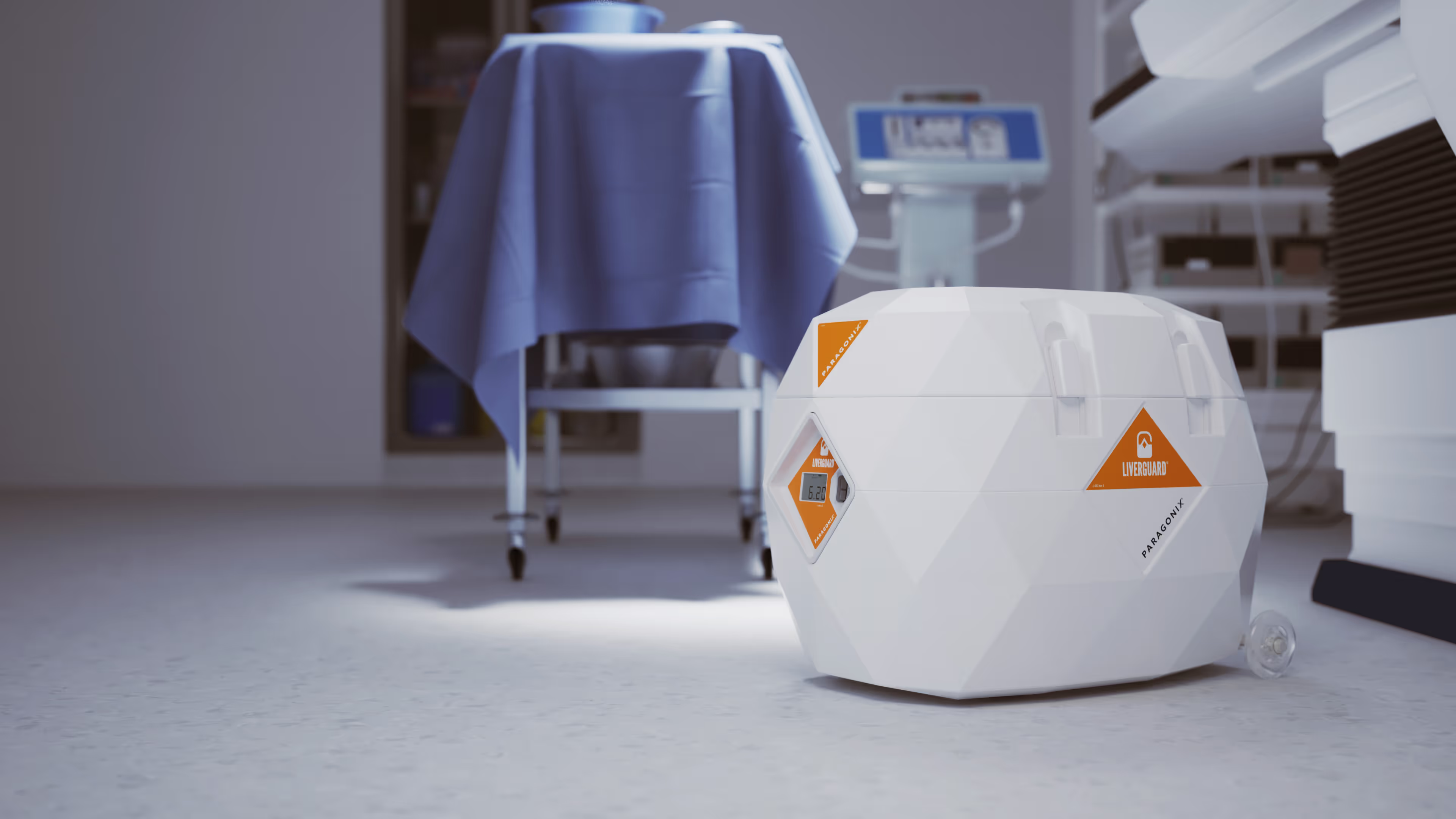Cold ischemia time refers to the period of time during which a donor liver is cooled to maintain its viability until it can be transplanted into the recipient. The length of cold ischemia time may vary greatly, although prolonged cold ischemia time is traditionally associated with greater risk of complications after the transplant procedure. Research has linked longer cold ischemia times with poor outcomes, such as longer post-transplant hospital stays and a higher rate of primary graft nonfunction.1,2
Traditionally, donor livers destined for transplantation were placed into commercial-grade coolers filled with ice to transport it to the recipient. This method presents a multitude of uncontrolled variables that can also impact the function of the liver post-transplant. Clinical evidence has shown that the use of ice can expose donor organs to freezing temperatures, leading to irreversible cellular damage.3
The Paragonix LIVERguard System is an Advanced Organ Preservation device specifically designed to standardize the variables of donor liver preservation, providing physicians with stable cooling technology driven by real-time data monitoring.
Caution: Federal (US) law restricts this device to sale by or in the order of a licensed health care practitioner. Please refer to Instructions for Use for full prescribing information. Cleared indication is for 15-hour use. Patents issued and pending. See Indications For Use for more information.





